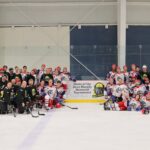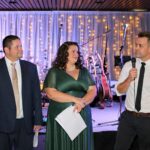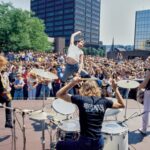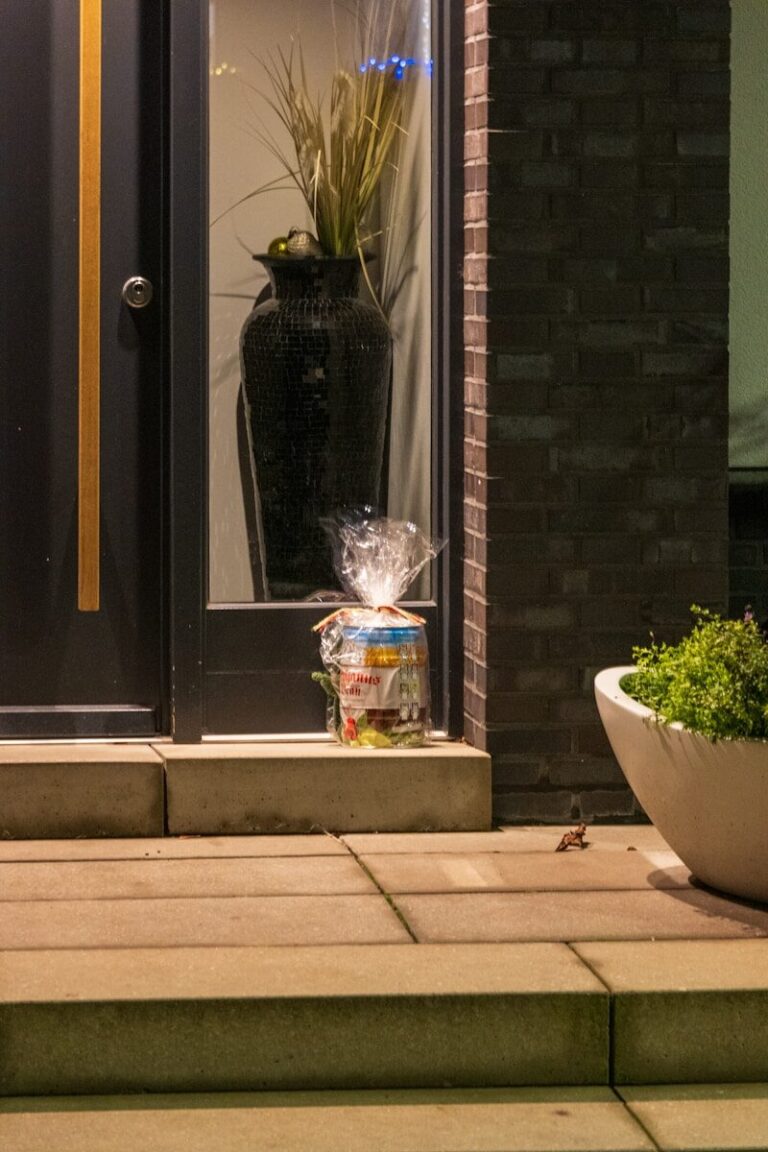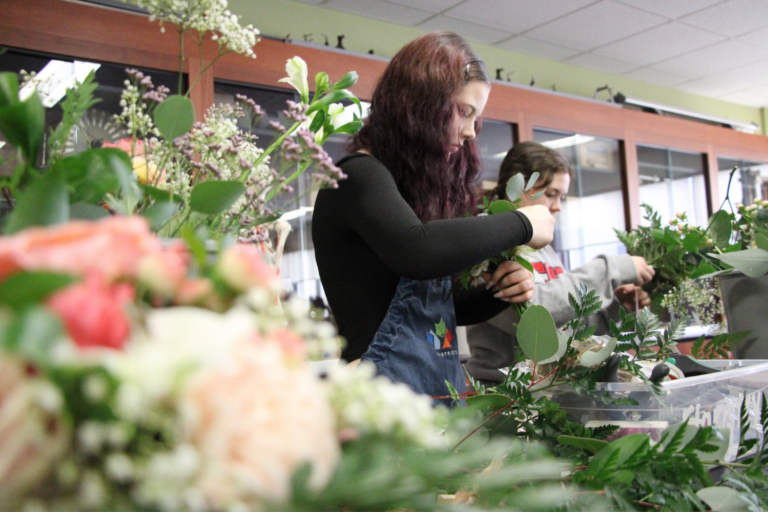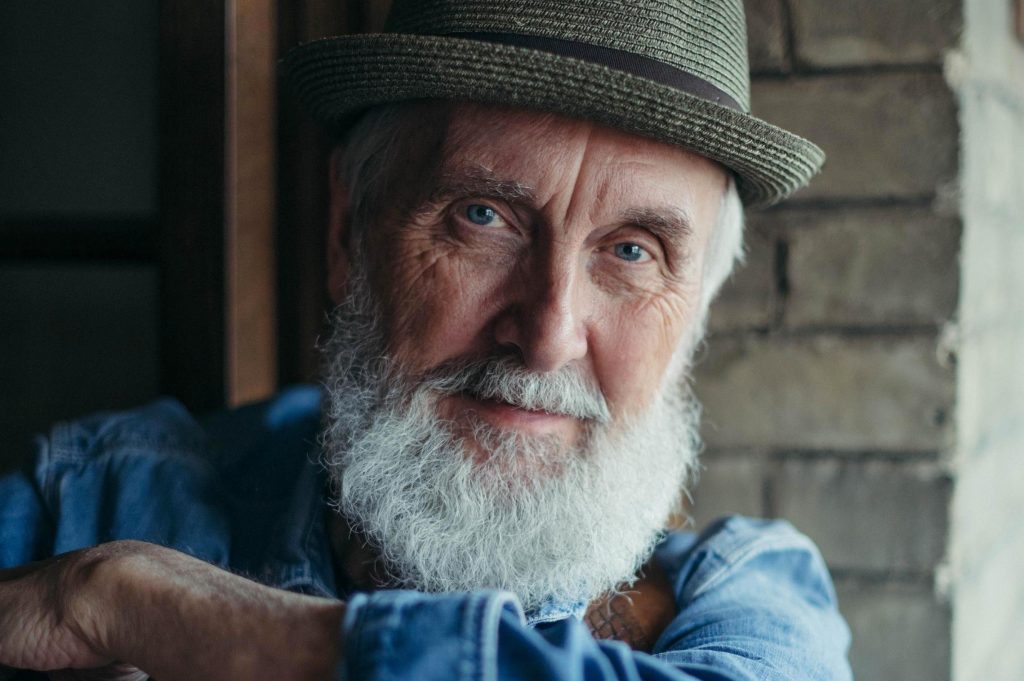

Winchester Ontario – Three time Juno Award winning musician Fred Penner will be performing at the Winchester Old Town Hall on Friday, September 15th at 7:30pm, and again at the Morton Community Hall on Sunday, September 17th at 3pm as a part of the Ontario Festival of Small Halls.
Fred Penner, who made a career entertaining and educating children, is also a Member of the Order of Canada.
In 1984, Fred Penner appeared on The Elephant Show performing “The Cat Came Back”, which instantly became a children’s favourite. The origins of “The Cat Came Back” was from an old comedic folk song written by Harry S. Miller in 1893 – which had a very sinister ending. Fred Penner turned it into an iconic kids song and made it children friendly.
[youtube https://www.youtube.com/watch?v=J2XgXStPms4&w=560&h=315]
“I found the song in 1978 as I was working with my brother and a cousin, and we were flipping through an old folk song encyclopedia. Sure enough there was “The Cat Came Back”, and it had such a perfect chord progression to it, a beautiful circular pattern. It was easy to jam to, it was fun to listen to. “Hit the Road Jack” is the same chord progression, and there are many songs written with that pattern. We loved playing it. Looking back at the lyrics and energy of the song; it was from the early revival shows and pre-vaudeville in the 1890s. It was so much about the magical life of this cat, and no matter what happened to it, it would always come back. In some existential way it was about survival. For audience members listening to it, the theme is you can make it through. It’s supportive to anyone going through challenges in life. It’s an engaging tune on so many levels,” Fred Penner stated.
The role of children has changed drastically over the past few centuries, and the idea of music specifically for children is a relatively new concept.
“The idea of music for children, it’s really a contemporary concept. It didn’t really exist until the the mid twentieth century or ever later than that. There was family music, folk tunes and old nursery rhymes, that sort of formed the foundation of sound for children. Not until the early 70’s when I came on the scene, and Raffi; Sharon, Lois and Bram came on the scene, we started creating music that was more specifically for children, and acceptable by parents. It’s gone through some very interesting transitions here,” Fred Penner explained.
From years in children’s television, to Ted Talks, and performing on the George Stroumboulopoulos Show, Fred Penner has a remarkable career. He is perhaps best known for his CBC television show Fred Penner’s Place, and as the man hiking through the forest, crawling through the log to a peaceful enclave where children could sing, hear stories, and learn. How did Fred Penner get his big break? In 1985 he got an unexpected phone call from CBC that changed his life.
[youtube https://www.youtube.com/watch?v=lC8aq320gz8&w=560&h=315]
“It was totally unexpected, it was out of the blue – a blessing that just landed on my plate. A phone call from CBC in 1985. They had been watching my programs and liked what I was doing. They said, do you want to do a show? I said, great, what do I do? They said, what ever you like basically. I did my soul searching and came up with the concept of crawling through a hallow log to a refugee, and place where the viewer could feel protected. It’s a journey to get to this log, and virtually crawl through into this environment where this guy would sing songs and tell stories, and we’d have an interaction together, and a positive connection,” Fred Penner reminisced.
Was the Fred Penner on the show the real Fred Penner or a character? Fred Penner explains he was authentically himself on the show.
“I never played the diva, I never had to assume a different character to do what I do. When you’re doing television your awareness is heightened, and you want to bring a flow of your energy, a consistent flow to the audience. So that’s the only difference. The way that I speak, the energy that I communicate with by style of voice, I don’t change my voice pattern when I speak with children. I do not condescend. It’s all about being direct and honest, and communicating, and being respectful to the child. That again, is a critical part of my existence,” Fred Penner added.
Over the years Fred Penner has had friendships with other children’s television personalities like Ernie Coombs who played Mr. Dress-up.
“Ernie (Coombs) and I were friends over the time. Before he passed away he did a couple of episodes of Fred Penner’s Place. That was a really powerful experience for me because he came on the show less than a month after his wife was tragically killed in downtown Toronto in a car accident. We were good pals. He was such a lovely man. It was a delight to connect with him to say the least,” Fred Penner reflected.
Unlike Mr. Dress-up or Mr. Rogers, it was always just Fred Penner. Was there ever any consideration of adding the prefix and calling yourself Mr. Penner?
“That was never a question. That was my name, and Fred Penner’s Place. A lot of people have called me Mr. Fred Penner, and many of the characters on Fred Penner’s Place would refer to me as Mr. Fred Penner. It was sort of funny. It wasn’t a conscious opinion to go one way or the other,” Fred Penner admitted.
Fred Penner’s Place had a puppet character named Word Bird. Was the name of that character inspired by The Trashmen’s song Surfin’ Bird where “everybody knows that the bird is a word”.
“Possibly. I don’t know. That concept for the Word Bird came from one of the writers. Her name is Pat Patterson, she was one of the first writers for Fred Penner’s Place. As the show was in development, she had that input. I came up with the concept of the forest and the log, and she put in the Word Bird. It is a wonderful vehicle in that environment to bring words to the audience, to use that as the foundation of creating that connectivity with the child,” Fred Penner responded.
Growing up Fred Penner and his family listened to records, and he played a bit of piano. However, playing guitar would come later.
“Playing records, my parents were into the music of the 40s with the old swing bands, Benny Goodman, The Dorsey Brothers, etc. My older brother and sister listened to music of the 50s, the early boy bands, and the 60s came along with all the folk music. That sound was very important to me. I played a little bit of piano and organ when I was growing up,” Fred Penner stated.
Fred Penner never played guitar until the age of 15. He recounts the experience of getting his first guitar.
“I didn’t get my first guitar until I was 15. My brother married a young lady from Saskatchewan, and we were at the Wedding. I was the best man, and we went to the family farm. On the back of the door, there was this guitar. I never seen a guitar before, because we didn’t have one at home. Certainly not up-close. I had never touched one. So I said to my brother’s father-in-law, can I look at this. He said, you can have it, it’s old. I thought are you kidding? It was a terrible guitar. It was called a Stella. The action was terrible, the strings were old. It was really hard to play. I got new strings for it, and I learned my basic chords, and within a few months I had another guitar that was easier to make music on. That’s where the first guitar came from. It was like the air was crackling when I saw that instrument. This is for me I thought. I was right into it,” Fred Penner replied.
Fred Penner also grew up with a sibling who had special needs. His sister Susan had down syndrome. Recently, Sesame Street has done something groundbreaking, creating a Muppet with special needs – Julia has autism. How important is it to teach children about inclusiveness and how to interact with children who have special needs?
“That acceptability of any kind of special needs is really important. I just came from the Holland Bloorview Rehabilitation Centre for Children, and they have music programs, where they are able to find musical moments for children, kids who don’t have a lot of physical ability, and can move their arms around. They have an interactive screen where they can move their hand and activate a tone. There is such a support system for all levels of challenge. Parents of children with cerebral palsy can be overwhelmed for what that means for a family. The more visibility we have in life of all these challenges, the better. We’re all in this together. It’s only the luck of the draw if one child has a problem or challenge that will require more support systems over somebody else. I think that it’s important that it be brought forward, absolutely,” Fred Penner responded.
[youtube https://www.youtube.com/watch?v=yOSUNM5M72U&w=560&h=315]
Is there enough funding for children’s music and arts programs?
“No. They are missing the boat on that. There are some schools and organizations that really do get it, but from my point of view the arts is critical in the development of a child. A child needs to be able to be creative, needs to be able to make themselves vulnerable so they can explore that world of creativity. It’s so important. For school’s to think that is one of the first things they can eliminate from the system, it’s wrong. I think resources should generally be focused strongly on those early years. The elementary years of children, so that they can grow up to be much stronger, more balanced, energetic and positive human beings. That has to go through, and I hope that it does go through continual transitions,” Fred Penner stated.
Fred Penner also has a brand new album out, titled “Hear the Music”. The audio quality is fantastic, the cover art is amazing, and the opening track is powerful. Tell us a bit about the new album, and where you are finding the drive to continue producing work of such a high caliber?
“It’s all from the audience. If I didn’t feel there was strength and connectivity from the audience encouraging me to keep doing this… I’m 70 years old now. The retirement word is not a part of my vocabulary. I’m living my dream, and the audience is still supporting my path. I’ve never stopped creating. The songs I brought to “I hear the Music” are many tunes I have had snippets of, that I’ve had in my folder for a long time. I really wanted to bring them forward. As they did come to fruition, finding people like Ron Sexsmith, Alex Cuba, The Good Lovelies, Basia Bulat, etc… who were very excited to be a part of my world there. It just grew and it gained so much lovely support from every side. It was a really powerful process, and I’m just so excited it has reached fruition,” said Fred Penner.
Are children who watched your show on CBC in the 1980s and 90s now bringing their own children to see you live?
“Those are the Fred Heads. That’s the generation that grew up with me, and are excited about reconnecting, and coming forward. When I’m doing performances across the country they are really keen for their children to meet me. That happens all the time now. A parent who has grown up on my music has a child, and they say that you were my first concert, and this is this child’s first concert. It’s pretty incredible to see that evolve, and who knew it would ever go that far, but I’m just very grateful, that it has gone as far as it has. I feel humbled that I’ve been able to have a 45 year career that doesn’t show any signs of stopping,” Fred Penner stated.
“It’s for the whole family. It’s communication. I communicate through my music. I have a bevy of songs that I’ll explore with the audience. There will be lots of participation, lots of story telling, lots of bringing the audience into my world of communication through words, music, and story. The whole concept is an up-close and personal Fred Penner. I’m really excited about being there. Thank you,” Fred Penner concluded.
The Festival of Small Halls is taking place throughout Ontario and SDSG from September 14th to October 1st. For a list of the complete line-up including Ashley MacIsaac, dates, times, and ticket information, visit their website.


